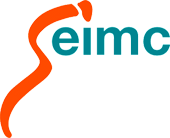Treatment of breast abscesses is based on drainage and antibiotic therapy directed at the bacteria causing the infection. The aim of this study was to know the etiological agents of breast abscesses.
MethodsPatients who had a culture-positive breast abscess between September 2015 and January 2020 were included in the study. Culture results were consulted in the laboratory database. It was collected from medical records if the patients presented the following risk factors: breastfeeding, diabetes or smoking. Abscesses secondary to surgical wound infection were excluded.
ResultsSixty patients were included, 58 women and 2 men. Staphylococcus aureus was the most frequent agent in lactating women. Anaerobic bacteria were isolated in 28 (61%) of 46 abscesses in non-lactating patients. In non-lactating patients, the frequency of anaerobes in abscesses was lower in diabetics than in the rest (0/5 vs 26/38; P = .013). In non-lactating and non-diabetic patients, the proportion of abscesses with anaerobes was higher in smokers than in non-smokers (21/24 vs 5/14; P = .003). Aerobic gram-positive cocci were the most frequent agents in diabetics.
ConclusionAnaerobes were the most frequent agents, followed by S. aureus. The etiology of breast abscesses varied with the risk factors studied.
El tratamiento de los abscesos mamarios se basa en el drenaje y la antibioticoterapia dirigida a las bacterias causantes de la infección. El objetivo de este estudio fue conocer los agentes etiológicos de los abscesos mamarios.
MétodosSe incluyó en el estudio a los pacientes que, entre septiembre de 2015 y enero de 2020, tuvieron un absceso mamario con cultivo positivo. Se consultaron los resultados de los cultivos en la base de datos del laboratorio. Se recogió de las historias clínicas si los pacientes presentaban los siguientes factores de riesgo: lactancia, diabetes o hábito fumador. Se excluyeron los abscesos secundarios a una infección de herida quirúrgica.
ResultadosSe incluyeron 60 pacientes, 58 mujeres y 2 varones. Staphylococcus aureus fue el agente más frecuente en mujeres lactantes. Se aislaron bacterias anaerobias en 28 (61%) de los 46 abscesos en pacientes no lactantes. En los no lactantes, la frecuencia de anaerobios en los abscesos fue menor en diabéticos que en el resto (0/5 frente a 26/38; P = ,013). En los no lactantes y no diabéticos, la proporción de abscesos con anaerobios fue mayor en fumadores que en no fumadores (21/24 frente a 5/14; P = ,003). Los cocos grampositivos aerobios fueron los agentes más frecuentes en los diabéticos.
ConclusiónLos anaerobios fueron los agentes más frecuentes, seguidos por S. aureus. La etiología de los abscesos mamarios varió con los factores de riesgo estudiados.
Article
Socio de la Sociedad Española de Enfermedades Infecciosas y Microbiología Clínica

Para acceder a la revista
Es necesario que lo haga desde la zona privada de la web de la SEIMC, clique aquí
Para realizar los cursos formativos
La actividad estará abierta para socios de la SEIMC. IMPORTANTE, recuerde que requiere registro previo gratuito. Empezar aquí






